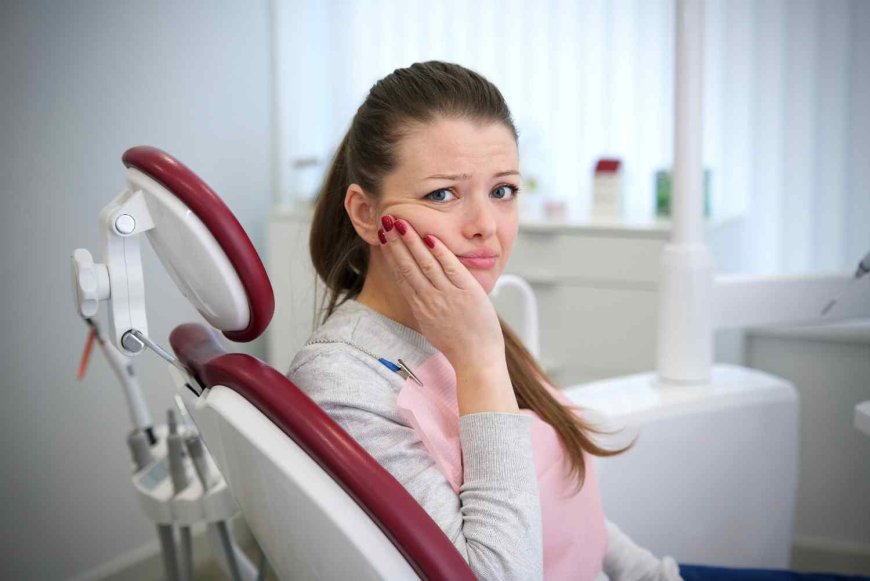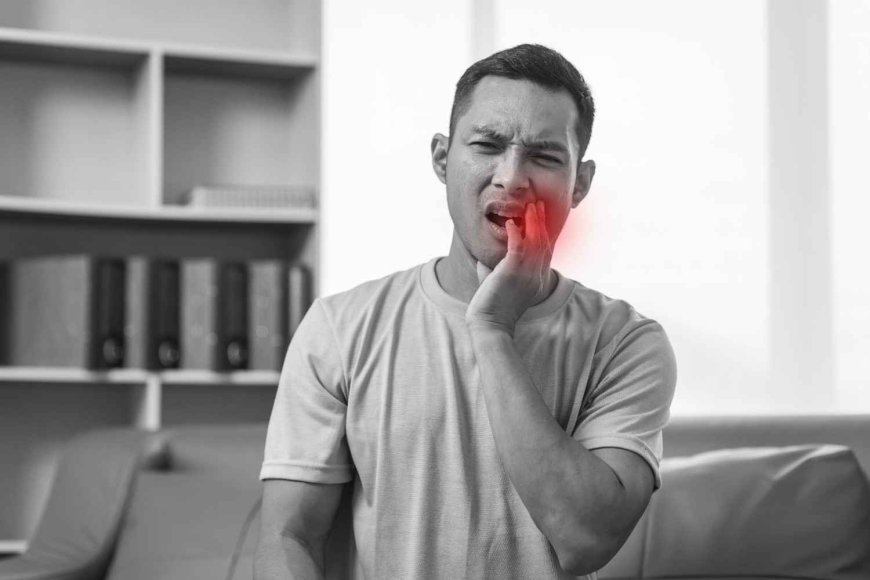The Right Response to a Dental Emergency in Neath
Learn how to stay calm and act fast during a dental emergency. Get practical steps and professional care tips for effective treatment for wellbeing.

Dental emergencies can strike without warning, turning a normal day into a painful ordeal. Whether its a knocked-out tooth, sudden swelling, or uncontrollable bleeding, knowing how to respond effectively can make a significant difference in preserving your oral health. In Neath, quick access to an emergency dentist and maintaining routine care with a hygienist can help manage and prevent many dental crises.
Lets explore what counts as a dental emergency, what to do in such cases, and how residents in Neath can stay prepared.
What Qualifies as a Dental Emergency?
Understanding what counts as a dental emergency helps you make informed decisions. Not every dental discomfort needs urgent care, but some situations require immediate attention.


Common Dental Emergencies Include:
- Knocked-out tooth (due to trauma or accident)
- A cracked or broken tooth causing severe pain
- Dental abscess or swelling
- Sudden and persistent toothache
- Bleeding that doesnt stop after injury or extraction
- Lost or damaged fillings, crowns, or bridges
If you're facing any of these issues in Neath, its vital to seek help from anemergency dentist in Neathimmediately.
First Aid Steps Before You See a Dentist
Responding correctly during the initial moments of a dental emergency can prevent complications and save teeth.
|
Emergency Type |
Immediate Action |
|
Knocked-out tooth |
Rinse gently, place in milk/saliva, and visit a dentist within 30 mins |
|
Cracked tooth |
Rinse with warm water, apply a cold compress |
|
Toothache |
Rinse mouth, use dental floss to clear debris, and avoid aspirin |
|
Lost filling/crown |
Cover cavity with sugarless gum, and avoid chewing on that side |
|
Bleeding after trauma |
Apply gauze with pressure for 1015 minutes, seek help if it continues |
When to Call an Emergency Dentist in Neath
Not sure if its time to reach out? If you're experiencing any of the symptoms below, dont delay contacting an emergency dentist in Neath:
- Pain that prevents eating, sleeping, or working
- Visible abscess or swelling near the tooth or jaw
- Signs of infection, such as fever, foul taste, or pus
- Tooth trauma due to sports, falls, or accidents
- A dental appliance that is causing injury or severe discomfort
Most emergency dental practices in Neath offer same-day appointments and can provide fast relief.
The Role of the Hygienist in Neath in Preventing Emergencies
Preventive care plays a huge role in reducing your risk of dental emergencies. Regular visits to a hygienist in Neath can help identify and manage early signs of decay, gum disease, or infection.
How a Hygienist Helps:
- Removes plaque and tartar build-up
- Detects minor gum issues before they worsen
- Advises on brushing and flossing techniques
- Performs professional deep cleans
- Spots areas prone to cavities or erosion
- Monitors the health of existing restoration
By including a hygienist in Neath in your oral health routine, you are actively reducing the likelihood of sudden pain or tooth loss.
Common Mistakes to Avoid During a Dental Emergency
Amid pain or panic, its easy to make well-intentioned but harmful choices. Knowing whatnotto do during a dental emergency can protect your oral health and prevent further complications.
- Delaying treatment:Waiting too long can result in infection or permanent damage. Contact an emergency dentist in Neath as soon as symptoms arise.
- Placing aspirin directly on the gums:This folk remedy can cause chemical burns to your soft tissues.
- Using tweezers or pins to remove stuck food:These can damage your enamel or injure your gums.
- Applying heat to swelling:Heat may intensify inflammation if the area is infecteduse a cold compress instead.
- Neglecting hygiene due to pain:Continue brushing gently, and consult a hygienist in Neath if you need professional help.
- Skipping follow-up visits:Even if the immediate pain goes away, unresolved underlying issues may remain.
Emergency Dental Kit Essentials for Every Home in Neath
Being prepared with a basic dental first-aid kit at home can ease anxiety and offer temporary relief until you can visit a professional.
|
Item |
Purpose |
|
Sterile gauze |
Control bleeding or protect exposed teeth |
|
Small container with lid |
Safely transport a knocked-out tooth |
|
Paracetamol tablets |
Temporary pain relief (avoid aspirin on gums) |
|
Dental mirror |
Help examine hard-to-see areas of the mouth |
|
Antiseptic mouthwash |
Rinse away bacteria if theres bleeding or swelling |
|
Dentist's contact info |
Speed dial for an emergency dentist in Neath |
Having these essentials on hand gives you peace of mindand may just save a tooth in an emergency.
Dental Emergency Scenarios: What Residents of Neath Should Know
Lets look at a few real-life inspired scenarios and how they should be handled.
1. Swollen Jaw After Wisdom Tooth Eruption
Response:Apply a cold compress, avoid pressure on the area, and contact an emergency dentist in Neath if swelling increases.
2. Childs Tooth Knocked Out While Playing
Response:Find the tooth, rinse gently, avoid touching the root, place in milk, and rush to a dentist.
3. Sudden Pain While Eating
Response:Rinse mouth with warm water, avoid chewing on the painful side, and book a quick visit with a hygienist in Neath or a dentist to determine the cause.
Tips for Managing Dental Discomfort at Home
While you wait for your dental appointment, these methods may ease your discomfort:
- Saltwater rinse: Helps reduce swelling and cleans the mouth
- Cold compress: Effective for jaw swelling or pain
- Clove oil: Natural pain-reliever applied with a cotton swab
- OTC painkillers: Paracetamol is generally safe but follow dosing advice
- Avoid hard/chewy foods: Stick to soft, cool items like yoghurt or mashed potatoes
However, these are temporary solutions and do not replace the need for a proper dental check-up.
Preventive Checklist: Staying Emergency-Ready in Neath
Here's a simple checklist for Neath residents to minimise emergency risks:
|
Preventive Task |
Recommended Frequency |
|
Routine dental exams |
Every 6 months |
|
Visits to your hygienist in Neath |
Every 6 months (or as advised) |
|
Mouthguard use during sports |
Always |
|
Replacing worn dental appliances |
As soon as damage is noticed |
|
Avoiding ice, popcorn kernels, hard sweets |
Ongoing awareness |
|
Emergency contact of a local dentist |
Keep it saved on your phone |
What to Look for in an Emergency Dentist in Neath
Choosing the right emergency dentist can be the difference between saving a tooth and losing it. Ensure yourhygienist in Neathoffers:

- Same-day appointments
- 24/7 helpline or support
- Experience with trauma and paediatric cases
- Transparent pricing and insurance acceptance
- Calm, patient-centred care in emergencies
Its advisable to identify such a dentist before an emergency strikes. Preparation saves time and stress.
Conclusion
A dental emergency can be frightening, but with the right response and professional help, outcomes can be positive. Whether you're dealing with an injury, infection, or sudden toothache, immediate action and informed decisions are key. Regular care from a hygienist in Neath and knowing how to reach an emergency dentist in Neath can prevent many issues and ensure your oral health remains in top shape. For trusted emergency dental care and preventative solutions, EDA Group is here to support the Neath community with expert care when you need it most.








































